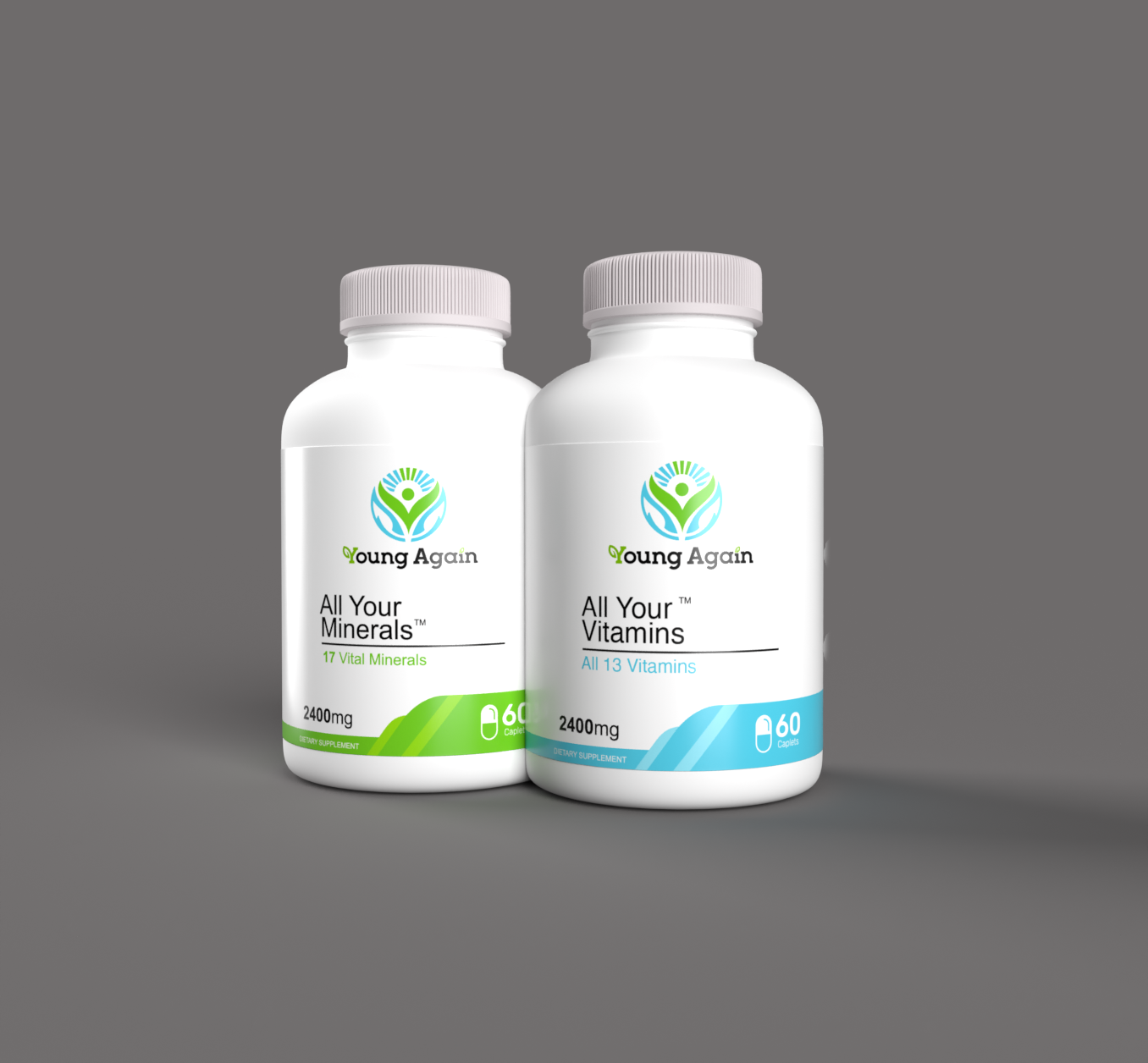Good Sleep
Share
We spend one third of our lives asleep, unconscious, with almost no memory of our dreams. One quarter of Americans admit they don't get enough sleep (Sleep & Breathing v 14, 2010). We spend one third of our lives asleep. Mystics have said sleep is when the soul is free to travel. Good sleep is hard to come by though, especially as we age. About 30% of American adults complain of insomnia specifically. In other industrialized countries mainly about 20% do. Sleep problems differ with race, sex, and geographical area. Sleep needs differ greatly in people. Too much or too little sleep is harmful to our mental and physical health. Poor sleep can eventually affect your very sanity. Good sleep is a very complex multi-factorial issue. Aging per se increases sleep issues; as you get older you'll find more and more sleep problems. Poor sleep can have dramatic psychological and emotional consequences (Sleep Medicine v 11, 2010). It even interferes with a good sex life. Inadequate sleep lowers our immunity, so we are subject to all manner of ills (Pflueger's Archiv v 463, 2012). People who sleep too much or too little actually die earlier. That's right- poor sleep causes early mortality (Sleep v 33, 2010). There are no easy answers here. You must treat poor sleep with a total program of diet and lifestyle, and not look to Magic Supplements. Think whole body holistic health, and not merely "sleep". Read the Seven Steps article and do all seven faithfully. Diet and lifestyle.
As always, diet is everything. Eating well means better sleep (European Journal of Pediatrics v 169, 2010). Americans eat twice the calories they need, twice the protein they need, over 40% saturated fat calories, 160 pounds of various sugars, and only 1% whole grains. We are overfed and undernourished. Due to our affluence and availability of in-expensive food, we have the worst diet on earth overall. Rural Asians, who eat a low-fat, low-sugar diet based of grains, vegetables, and seafood, have a fraction of the sleep issues that Westerners have. Reduce calories by eating low calorie low fat foods like whole grains, beans and vegetables.
All blood sugar dysfunction is central to sleep disorders. The main physical cause is high blood sugar, high insulin, high HbA1c, and insulin resistance. Insulin resistance means your cells don't respond well to normal levels of insulin. Your fasting blood sugar must be 85 or less. Metabolic Syndrome also causes poor sleep. Diabetics are known to have serious sleep problems generally. Your insulin level should be under 5. The average American has about an 8.5 level. The entire blood sugar axis is involved with good sleep. Yes, eating sugar causes insomnia. Read the article Sugar is Sugar in our library. Americans swill down over 160 pounds of various sugars every year- about a half pound a day! Any form of blood sugar disorder, including diabetes, Metabolic Syndrome, high blood glucose, insulin resistance, or high insulin is a big factor in poor sleep. Metabolic Syndrome is characterized by high blood sugar, high cholesterol, obesity, high triglycerides, and insulin resistance. Read my book The Natural Diabetes Cure to learn about blood sugar and insulin control. Buy a $10 Tru® blood sugar meter, as well as an inexpensive HbA1c test kit at the drugstore. Look for a 4.7result, not the usual 5.6 cutoff. 4.7 equals a blood sugar level of 85. You can get the gold standard GTT (glucose tolerance test) from a doctor to test insulin resistance. Look for a result 20 points less than the accepted medical level. Online labs like www.healthcheckusa.com will do a real insulin blood test for $29 without a doctor. Caffeine, even one cup of coffee or one energy drink a day, can ruin your blood sugar axis as well.
The three main psychological causes are depression, anxiety, and stress. You must learn to deal with the very cause of your emotional problems. You must solve them in order to be free from them. Never take drugs to treat them. They only make you worse in the end. Sleep inducing drugs like Belsomra®, Lunesta®, Rozerem®, Sonesta®, Sonata®, and Ambien® have a long list of serious side effects. They will even interfere with your dreaming- and your sanity. Never take any drug for depression or anxiety either.
In fact, you do not want to take prescription drugs for any reason, except temporarily in emergencies. All of them make your health worse. Many of them directly affect sleep patterns. Yes, insulin is needed for type 1 diabetics, antibiotics for some infections, and temporary pain medication when required. Americans take more prescription drugs than anyone else in the world. Read the article Most Medicated Nation. All of them make you worse in the end. Many of them cause impaired quality of sleep. You can't poison your way to health. Drugs only make you worse, not better.
Recreational drugs can also interfere with sleep. This is especially true for stimulants such as caffeine, cocaine, ecstasy, and amphetamines. Just one dose of caffeine daily can ruin your sleep pattern. Marijuana may well help some people sleep better, but this comes at a cost of lethargy, foggy mindedness, lack of ambition, forgetfulness, and laziness. Nicotine (Nervenarzt v 81, 2010) and alcohol use are clearly shown to cause poor sleep. Opiates can actually enhance dreaming and bring on sleep, but using them will make your situation worse in the end.. Treating the symptoms with drugs is never the answer.
Since CHD is the major cause of death worldwide, it is important to know the five (5) most important diagnostic factors- cholesterol, triglycerides, homocysteine (Hcys), CRP, and uric acid. All five of these factors are clearly associated with sound sleep. You must have low levels of all five of these factors. It is important to keep the levels of all of them in the low normal-not merely normal-range. You will also live longer and have a better quality of life. Read my book Lower Cholesterol Without Drugs. If you don't sleep well, you can expect some kind of CHD to shorten your life. All this becomes a vicious cycle, where poor sleep makes heart and artery problems worse, while these problems produce poor quality sleep.
Hypertension is a basic cause of poor sleep, and must be discussed separately from other CHD issues. High blood pressure is the most common medical condition worldwide. Read my book Lower Blood Pressure without Drugs. About one fourth of American adults suffer from high blood pressure. This is a pandemic, not a mere epidemic. Hypertensives sleep less, and tend to suffer from psychological issues such as anxiety and a lower sense of well-being. Again, the vicious cycle feeds on itself.
Obesity is central here. One third of Americans are overweight. You are never going to sleep well until your weight is normal (Obesity v 18, 2010).You must lose weight. Over-weight people generally suffer from a variety of sleep disorders. This feeds on itself, as poor sleep causes even more weight gain. This becomes a vicious circle. You lose weight by making better foods choices, not going hungry. Read Macrobiotics for Everyone. Fat makes you fat, not food per se. In fact, fat intake alone has been clearly correlated with poor sleep. This is especially true to saturated animal fats, but also true for vegetable oils (Sleep Medicine v 11, 2010). We eat a ridiculous 40% saturated fat calories. Is it any wonder we don't sleep well? Yet another vicious circle where poor sleep causes obesity, and obesity causes poor sleep.
Hormone imbalance is a basic factor. Read the article Balance Your Hormones. It is very easy and inexpensive to balance your hormones without a doctor. Almost everyone over 40 has hormonal issues, especially women. You can test your DHEA and testosterone with a ZRT saliva kit. You can test your T3 and T4 with a ZRT blood spot kit. Women can use a ZRT kit to test their three basic estrogens. Take melatonin and pregnenolone if you are over 40. Both men and women can use progesterone cream. High estradiol and estrone in men and women can interfere with sleep. Low estriol in women can also be a factor. Hormone testing is simple, easy, inexpensive, and no doctor is needed.
Exercise will help you sleep soundly (Journal of Adolescent Health v 46, 2010). The more exercise you do the better, both aerobic and resistance. Most people simply do not get enough exercise. Just walking every day will lead to much better sleep (Biomedical Research v 28, 2007). Exercise also raises your beta endorphins, so you'll feel good.
The right mattress is obviously important. If you can afford an adjustable air mattress (like Sleep Number®) this is a good idea. Mattresses are not labeled as to softness, so there is no industry standard here. There should be. It is difficult to find the right mattress, especially when a couple is sleeping on the same one. Try sleeping with a small pillow between your legs. A 2 inch mattress topper can work wonders for some people.
Sleep apnea is a common, and very serious, condition affecting 4% of the population (1 in 25). Here, breathing becomes shallow, or even pauses. Obesity is the biggest factor of all. It takes time and patience to cure this. Apnea leads to heart and artery disease of all types. It also causes serious depression and mental problems. This often goes undiagnosed, since it only occurs when the patients is asleep. This can be cured naturally.
Kidney disease is epidemic in America, due mainly to the fact we eat twice the protein we need. This eventually destroys kidney function. Kidney disease of any kind will interfere with a good nights sleep. There are no kidney specific supplements. A low protein diet is the key to healthy kidney function. BUN and creatinine are standard kidney tests. You should not get up in the middle of the night to urinate.
The same is true of any type of liver disease. Any type of liver disorder will cause poor sleep. Depression and anxiety are common here. Liver disease is an epidemic in America now, and one of the top ten leading causes of death. Read the article Rejuvenate Your Liver. Do this program for six to twelve months. A low fat diet with no alcohol or drugs- prescription or recreational- is the key to healthy liver function. It is easy to diagnose liver function with standard SGOT and SGPT blood tests.
Restless leg syndrome (RLS) must be addressed. This affects 8% of elderly Americans- 1 in 12 older people. However, only about 2% of people in Asian countries have this problem (Psychiatry and Clinical Neurosciences v 64, 2010). Doctors can do nothing here. Yes, you can cure this naturally as well. Diet and lifestyle. Again, read the article Seven Steps to Natural Health.
What about napping? Many people over 50 take afternoon naps if they are able to. Many studies find this to be healthful. This can be a very good answer. Take a one hour nap in the after noon, and you will feel much better (Journal of Clinical Sleep Medicine v 6, 2010).
The winter time is the best time to sleep, and we sleep more during the cold months. Turn the room temperature down. Buy an ultrasonic humidifier. Wear loose, soft sleep socks. You can even fold a throw into thirds and put that at the bottom of your bed to keep your feet warm. Remember not to eat at night so you'll sleep on an empty stomach.
This is the most complex article in the library. It was also the most difficult to research and write due to the multiple factors, and mystery of how we spend one third of our lives. Your sleep problems can be cured naturally with diet and lifestyle.

